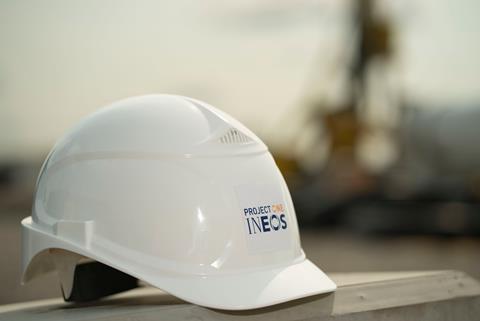The port of Antwerp-Bruges has appealed to its northern neighbours to “choose consultation” rather than resort to the courts when it comes to concerns around industrial project developments.
The Ineos Project ONE chemical project in Antwerp received environmental approval on January 7 on appeal. The permit, first approved in 2022, was revoked in July 2023. A challenge was filed by the Dutch provinces of North Brabant and Zeeland, the former stating that the project had been licensed without the effects of the additional nitrogen deposition having been sufficiently investigated. Separately, an annulment appeal was filed by 14 associations, including ClientEarth.
On January 7, 2024, Flemish minister for justice and enforcement, environment, energy and tourism, Zuhal Demir, gave the go-ahead to the largest investment in the European chemical sector for a generation, taking into account an 800-page document supplied by Ineos detailing its concrete, ecological and scientific approach to the project. Moreover, the Flemish government reached a new nitrogen agreement, identifying thresholds for agriculture and industry, and allowing companies that exceed the set emission threshold to apply for a permit if they carry out an individual appropriate assessment – enabling decisions to be made on a case-by-case basis.
Annick De Ridder, port of Antwerp-Bruges president, stressed the importance of cooperating with stakeholders when it comes to realising critical capital projects: “It is not only the cities of Antwerp and Bruges that cooperate, but also with all companies active in our port and with all possible stakeholders. I would therefore like to continue doing so with our northern neighbours when it comes to the nitrogen issue.
“I would also like to make a clear appeal to them: step over your own shadow. Don’t opt for court. Choose consultation. Especially when it comes to each other’s crucial infrastructure projects and investments. My door is always open for consultation; to sit together and work together. Working together is also necessary if we are to continue growing sustainably, attracting investment and pioneering.”
John McNally, ceo of Ineos Project ONE, said that the pandemic and the energy crisis have demonstrated Europe’s vulnerability in terms of industrial building blocks. “Strategic autonomy is therefore central to the European Commission’s vision. Project ONE is at the beginning of this value chain. It anchors the local processing of essential building blocks, such as ethylene, thus contributing to the resilience and sustainability of Europe’s industrial foundations.”
The project will see the construction and operation one of the most environmentally sustainable crackers on the Continent, converting ethane into ethylene, one of the basic raw materials for plastic production. The plant will have the lowest carbon footprint in Europe – three times lower than the average European steam cracker, according to Ineos.

















